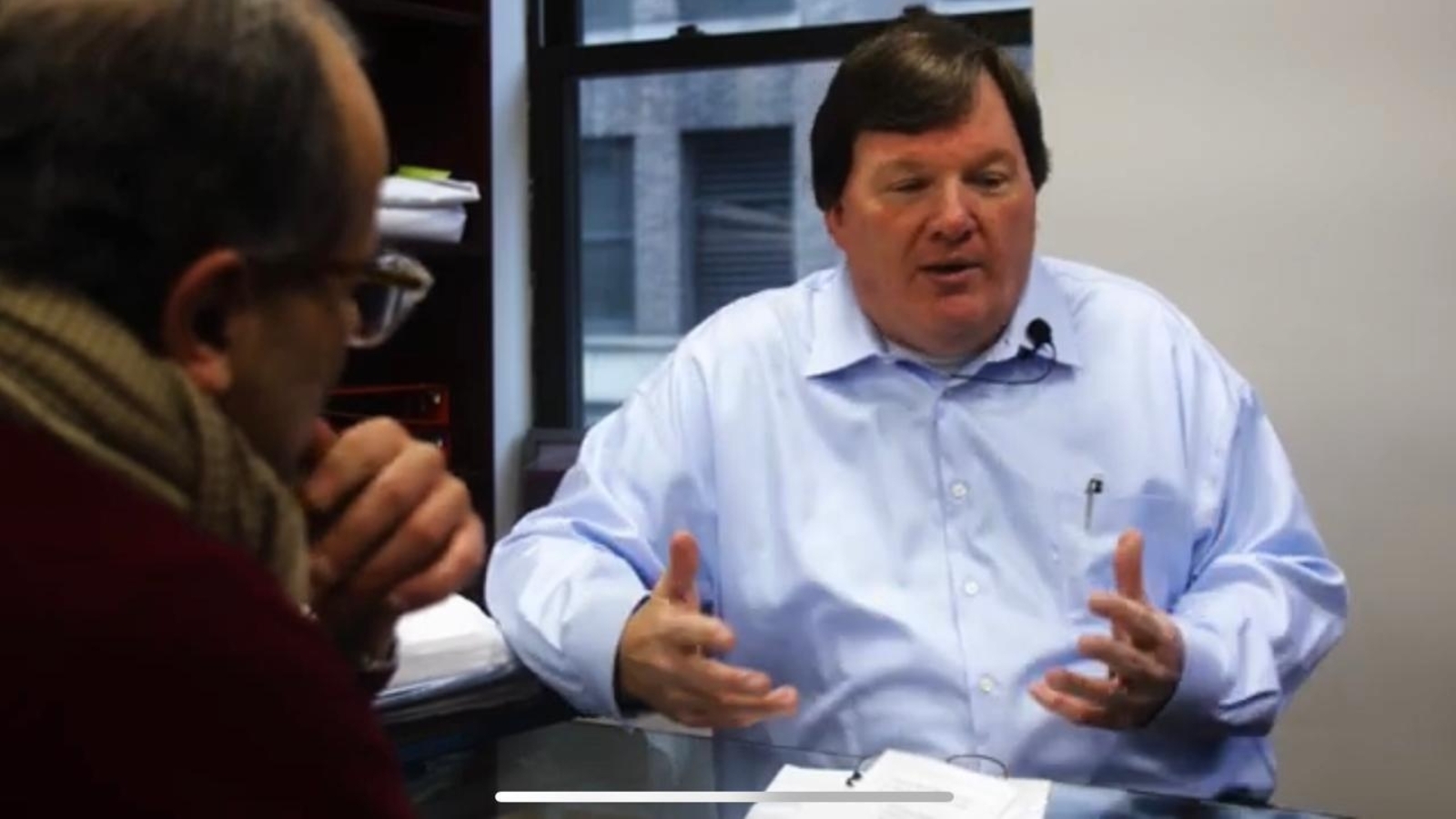US Energy Policy: Expert Concerns Over Potential Price Hikes For Consumers

Table of Contents
Impact of Current US Energy Policy on Energy Prices
The current US energy policy landscape significantly influences energy prices for consumers. Several key factors are at play.
Fossil Fuel Reliance and Price Volatility
The United States remains heavily reliant on fossil fuels – oil, natural gas, and coal – for its energy needs. This dependence leaves the nation vulnerable to global market fluctuations. Geopolitical instability, supply chain disruptions, and unexpected production outages all contribute to significant energy price volatility.
- Examples of price volatility: The sharp spike in oil prices following the Russian invasion of Ukraine in 2022 serves as a stark reminder of this vulnerability. Similarly, natural gas prices have experienced dramatic swings in recent years due to factors such as extreme weather events and changes in global demand.
- Impact of production levels: Reduced domestic production or unexpected disruptions in international supply chains can quickly translate into higher prices at the pump and in consumers' energy bills. This highlights the need for greater US energy independence.
- Fossil fuel prices are a major determinant of overall energy costs, significantly impacting consumers' budgets.
Renewable Energy Transition and Short-Term Costs
The transition to renewable energy sources, while crucial for long-term sustainability, presents short-term challenges for affordability. The upfront costs associated with building renewable energy infrastructure – solar panels, wind turbines, and associated grid upgrades – can be substantial.
- Costs associated with renewable energy infrastructure: The initial investment in renewable energy projects is often high, requiring significant upfront capital. However, the long-term operational costs are typically lower than those for fossil fuel-based power generation.
- Subsidies and government incentives: Government subsidies and tax credits are essential for making renewable energy projects economically viable and accelerating the energy transition. These incentives can influence the overall cost of energy.
- Intermittency challenges: The intermittent nature of solar and wind power requires investments in energy storage and grid modernization to ensure a reliable and stable energy supply. This adds to the short-term renewable energy costs.
Regulatory Framework and its Influence on Pricing
The US energy policy regulatory framework significantly impacts energy prices. Government regulations concerning energy production, transmission, and distribution directly or indirectly affect consumer costs.
- Regulations impacting energy production: Environmental regulations aimed at reducing pollution can impact the cost of electricity generation, potentially leading to higher energy bills for consumers.
- Energy market deregulation: Deregulation in some energy markets has introduced competition, potentially lowering prices in some areas, while increasing volatility in others.
- Government energy policies: Policies that promote energy efficiency or incentivize the development of renewable energy can have a positive impact on long-term affordability, though initial investments may present short-term challenges.
Expert Opinions and Predictions on Future Energy Costs
Forecasts from leading energy experts paint a concerning picture regarding future energy costs for American consumers.
Analysis from Energy Economists
Leading energy economists warn of sustained upward pressure on energy prices due to a complex interplay of factors, including geopolitical uncertainty, climate change impacts, and the ongoing transition to cleaner energy sources.
- Energy price forecast: Many economists predict that energy prices will remain volatile in the near future and potentially continue to rise in the long term unless significant policy changes are enacted.
- Expert analysis: Reports from institutions like the International Energy Agency (IEA) and the Energy Information Administration (EIA) offer valuable insights into the potential trajectory of energy prices and their impact on consumers.
- Energy market outlook: The outlook for the energy market remains uncertain, but experts widely agree that proactive policy changes are needed to mitigate potential price shocks and safeguard consumer affordability.
Concerns from Consumer Advocacy Groups
Consumer advocacy groups express deep concern regarding the potential burden of rising energy prices on vulnerable populations, particularly low-income households.
- Consumer energy burden: High energy costs can disproportionately impact low-income families, forcing them to choose between energy and other necessities.
- Energy affordability: Ensuring energy affordability for all is critical to ensuring social equity and economic stability.
- Low-income energy assistance: Increased funding for low-income energy assistance programs is crucial to protecting vulnerable households from the impacts of rising energy costs.
Potential Mitigation Strategies and Policy Recommendations
Addressing the challenges of rising energy prices requires a multi-pronged approach focusing on efficiency, renewable energy, and grid modernization.
Investing in Energy Efficiency
Improving energy efficiency in homes and businesses is a cost-effective way to reduce energy consumption and lower bills.
- Energy-efficient appliances: Investing in energy-star rated appliances can significantly reduce energy consumption and lower monthly bills.
- Home energy savings: Implementing home insulation upgrades, such as better windows and insulation, can reduce heating and cooling costs.
- Energy conservation: Adopting energy-conscious habits, such as using energy-efficient lighting and turning off electronics when not in use, can lead to noticeable savings.
Accelerating Renewable Energy Deployment
Faster adoption of renewable energy sources can reduce dependence on fossil fuels, offering long-term price stability and environmental benefits.
- Renewable energy adoption: Government incentives, streamlined permitting processes, and targeted investments in renewable energy infrastructure are crucial for accelerating the transition.
- Clean energy transition: A swift transition to cleaner energy sources will not only reduce greenhouse gas emissions but could also lead to long-term cost savings for consumers.
- Sustainable energy solutions: Investing in research and development of advanced renewable energy technologies is vital for improving efficiency and reducing costs.
Strengthening the Energy Grid
Modernizing the energy grid is essential for integrating renewable energy sources and ensuring reliability.
- Smart grid technology: Smart grids improve grid efficiency and reliability, helping to integrate intermittent renewable energy sources.
- Grid modernization: Investments in grid infrastructure upgrades are necessary to accommodate the growing share of renewable energy in the energy mix.
- Energy grid infrastructure: A robust and modernized grid is crucial for ensuring a reliable and affordable energy supply, even with increased reliance on renewable sources.
Conclusion: Navigating the Challenges of US Energy Policy and Protecting Consumers
The concerns surrounding rising energy prices, as highlighted by experts and consumer groups, underscore the urgent need for a comprehensive and forward-thinking US energy policy. The current reliance on fossil fuels, coupled with the challenges of transitioning to renewable energy, creates a complex situation impacting consumer affordability. To mitigate these challenges, we must prioritize energy efficiency, accelerate renewable energy deployment, and modernize our energy grid. Stay informed about the evolving landscape of US energy policy and demand solutions that balance energy independence with affordable energy for all. Advocating for sensible energy policy changes and a robust national energy strategy is crucial for safeguarding the economic well-being of American consumers.

Featured Posts
-
 Serial Killers Death Bath The Brutal Dismemberment Of Six Bodies
May 30, 2025
Serial Killers Death Bath The Brutal Dismemberment Of Six Bodies
May 30, 2025 -
 Olly Alexander Live At 3 Olympia Theatre Photo Highlights
May 30, 2025
Olly Alexander Live At 3 Olympia Theatre Photo Highlights
May 30, 2025 -
 Ticketmaster Sin Servicio 8 De Abril Ultimo Minuto Grupo Milenio
May 30, 2025
Ticketmaster Sin Servicio 8 De Abril Ultimo Minuto Grupo Milenio
May 30, 2025 -
 3 Olympia Theatre Capturing Olly Alexanders Electrifying Show In Photos
May 30, 2025
3 Olympia Theatre Capturing Olly Alexanders Electrifying Show In Photos
May 30, 2025 -
 Kyriaki 16 3 Ti Na Deite Stin Tileorasi
May 30, 2025
Kyriaki 16 3 Ti Na Deite Stin Tileorasi
May 30, 2025
